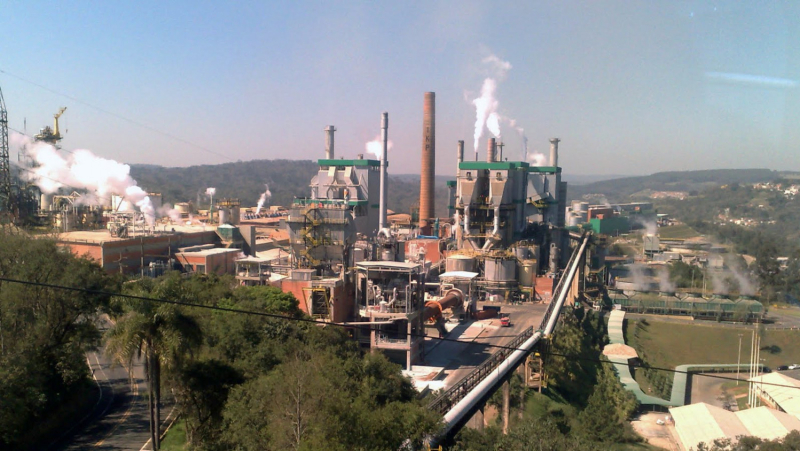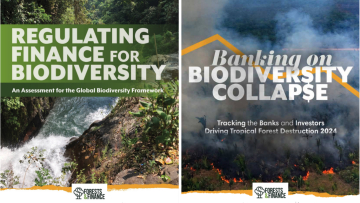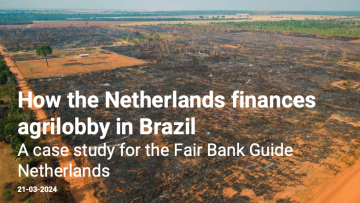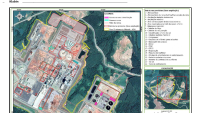
Company – On record
This profile is no longer actively maintained, with the information now possibly out of datenature@banktrack.org

Company – On record
This profile is no longer actively maintained, with the information now possibly out of datenature@banktrack.org
Why this profile?
Klabin is planning to build a large pulp mill, Puma II, in the state of Paraná in Brazil, requiring some 100,000 hectares of plantations. The company has not provided any information on what timber it will source or what communities may be affected.
| Sectors | Pulp, Paper and Paperboard Mills |
| Headquarters |
|
| Ownership |
listed on Brazil Stock Exchange
As of June 2019, Klabin's three largest shareholders are Monteiro Aranha (7.97%), The Bank of New York (7.45%) and BNDES (6.82%). |
| Subsidiaries |
|
| Website | https://www.klabin.com.br/en/ |
Klabin, founded in 1899, is the largest paper producer, exporter and recycler in Brazil, and the country's second largest pulp producer. Klabin owns four pulp mills: the Correia Pinto Mill, the Otacílio Costa Mill, the Telemaco Borba/Monte Alegre mill and the Puma mill. Its total pulp capacity is 3.1 million tonnes a year.
In 2016, Klabin opened its Puma mill, which has a total capacity of 1.5 million tonnes per year and is located on the Tibagi river, downstream from the company's Telemaco Borba mill. In 2018 the company started to prepare for the development of a new mill, Puma II, on this site.
What must happen
Banks and other investors should refrain from financing the Puma II project and from providing further financial support to Klabin until it:
- Publishes an Environmental Impact Assessment for Puma II, that includes an evaluation of the impact of the expansion of monoculture plantations, that will be driven by this project, as well as an analysis of the cumulative impacts caused by the planned mill and the two already existing mills at the Tibagi river;
- Publishes a detailed plan for the prevention, mitigation and compensation of environmental and social impacts;
- Provides information about the Free Prior and Informed Consent (FPIC) process for affected communities, covering both the project and the impact mitigation and compensation plans;
- Publishes geo-referenced maps of identifying where it will source timber from; and
- Commits to only use Totally Chlorine Free (TCF) bleaching technology with closed water cycle.
Social and human rights impacts
Project affected communities Klabin is planning to build a new mill, Puma II, in the state of Paraná, which will have a capacity of almost one million tonnes per year. The company has not made and Environmental Impact Assessment for the Puma II pulp mill, even though the project will almost double the capacity of the mill. No information was found regarding public consultation for this project, neither on Klabin's website, nor in that of the state's licensing agency IAP (as of June 2019).
There are several indigenous lands within the proximity of the Puma mill, which could be impacted by the expasion of the plantations. The company has not yet provided information about its process for seeking the Free Prior and Informed Consent (FPIC) for affected communities.
Environmental and climate impacts
No Environmental Impact Assessment for Puma II pulp mill In April 2019 Klabin obtained an installation license for Puma II, without having done an Environmental Impact Assessment. Puma II pulp mill will require approximately 100,000 hectares of eucalyptus and pine plantations. Since the company argues this is an expansion of its existing mill, Klabin did not make an Environmental Impact Assessment for the project, although it will almost double the capacity of the mill. In the Preliminary Environmental Report it does not provide any detailed information on where it will source the required fibre from.
The new pulp line and paper machines will be located on the Tibagi river, where already two other Klabin mills are located. The Preliminary Environmental Report does not provide any detailed information on where the mill will source the required timber from, and also does not analyse the cumulative impacts of these three mills.
Other impacts
In 2017, Klabin issued USD 500 million of green bonds, followed by another USD 500 million in 2019. These bonds are marketed as providing an opportunity for investors to finance "green" projects. However, a study by EPN (2019) found that these bonds were largely used to finance business as usual activities such as "sustainable forest management", which includes the management of plantations and the acquisition of wood to feed the mill, and that they do not initiate a change towards a sustainable economy, but at best only make existing practices less harmful to the environment.
In November 2018 Klabin established financing via a revolving credit facility amounting to USD 1.1 billion (International Financing review). In the first quarter of 2019 Klabin contracted a five year revolving credit facility of USD 500 million (Klabin Q1 2019 Report). In addition, several financial institutions have provided underwriting services to the company, see below for more details.
In October 2019 IDB Invest led a USD 800 million loan to Klabin meant for financing Klabin's Puma II project. IDB Invest financed USD 180 million. A group of financial institutions - IFC, China Cofinancing Fund, IFC MCPP, Santander, Rabobank, HSBC, Sumitomo Mitsui Banking Corporation, Crédit Agricole, BNP Paribas, Sumitomo Mitsui Trust Bank, KEB Hana - co-financed USD 620 million. See below for more details.



